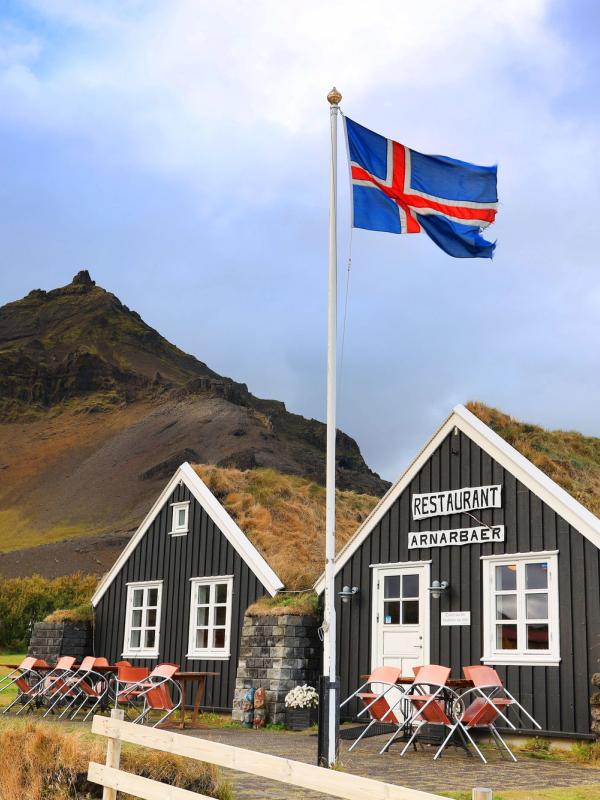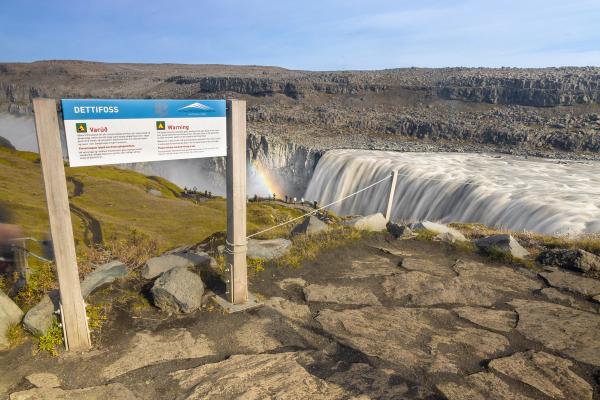
English Speaking in Iceland: A Common Practice?
When planning a trip to Iceland, many travelers wonder if they will be able to communicate in English. With a population of just over 350,000, Iceland is known for its unique language, but English is widely spoken throughout the country.
Whether you're exploring the capital city of Reykjavik or venturing into the stunning Icelandic countryside, you'll find that most people are fluent in English, making it easy to navigate and connect with locals. So, if you're worried about language barriers, rest assured that speaking English in Iceland is not only possible, but also quite common.
Is speaking English in Iceland acceptable?
Iceland is a country where the majority of the population speaks English fluently, making it perfectly acceptable to speak English while visiting. In fact, English is one of the most widely spoken foreign languages in the country, thanks in part to the booming tourism industry. This means that travelers can feel confident communicating in English while exploring Iceland's stunning landscapes and vibrant cities.
With English being widely spoken in Iceland, visitors can easily navigate the country without feeling language barriers. Whether it's ordering food at a restaurant, asking for directions, or engaging in conversations with locals, English speakers will find that they can communicate effectively and comfortably. This makes Iceland a welcoming and accessible destination for English-speaking travelers, adding to the overall appeal of visiting this unique and beautiful country.
In conclusion, speaking English in Iceland is not only acceptable, but also practical and convenient. With the majority of Icelanders speaking English fluently and the language being widely used in the tourism industry, visitors can feel at ease communicating in English throughout their travels in Iceland. So, for those wondering if it's okay to speak English in Iceland, the answer is a resounding yes.

Is Iceland friendly to American tourists?
Iceland is incredibly friendly to American tourists. The locals are known for their laid-back and welcoming nature, as long as visitors are respectful during their stay. If you're interested in experiencing this hospitality for yourself, be sure to check out more resources on visiting Iceland, including articles, videos, and self-drive tours.
In Iceland, American tourists can expect to be met with warmth and friendliness. The Icelandic people are known for their welcoming nature, making visitors feel right at home. For more information on planning your trip to Iceland, be sure to explore the various resources available, such as articles, videos, and self-drive tours.
The Surprising Truth About English Speaking in Iceland
Despite its small population and isolated location, English speaking in Iceland is surprisingly widespread. With a high emphasis on education and a strong tourism industry, most Icelanders are proficient in English, making it easy for visitors to communicate and navigate the country. In fact, English is often used in business, media, and everyday conversations, breaking the stereotype that Nordic countries have a low level of English proficiency. This linguistic phenomenon reflects Iceland's openness to the world and its ability to adapt to global trends, making it an ideal destination for travelers seeking a seamless and enjoyable experience.
Navigating Language Barriers in Iceland: English as a Key Tool
When traveling in Iceland, English serves as a key tool for navigating language barriers. With a large portion of the population speaking English as a second language, visitors can easily communicate with locals and access essential services. Whether ordering at a restaurant, seeking directions, or interacting with tour guides, English proficiency opens doors to meaningful cultural exchanges and seamless travel experiences. Embracing English as a common language in Iceland enhances the accessibility and enjoyment of this stunning destination for international visitors.
In a country where Icelandic is the official language, English proficiency is invaluable for overcoming language barriers and fully engaging with the local community. From interacting with Icelandic locals to accessing important information and resources, English serves as a bridge that connects visitors to the heart of Icelandic culture. Embracing English as a key tool for communication in Iceland not only facilitates smooth interactions but also fosters a deeper understanding and appreciation of the country's rich heritage and traditions.
Understanding the Role of English in Iceland's Cultural Landscape
English plays a crucial role in Iceland's cultural landscape, serving as a bridge between the country and the rest of the world. With a population of just over 300,000, Icelanders understand the importance of English as a global language for communication, business, and tourism. English is widely spoken and understood in Iceland, making it easier for international visitors to navigate the country and connect with locals. Additionally, English is taught as a second language in schools, further emphasizing its significance in Iceland's cultural and educational framework. This widespread use of English reflects Iceland's openness to the world and its recognition of the language's value in a global context.
The prevalence of English in Iceland's cultural landscape can also be attributed to its historical and political ties with English-speaking countries. Iceland was under Danish rule for centuries, and English became increasingly influential during the 20th century as Iceland gained independence and established diplomatic relations with the United States and the United Kingdom. As a result, English has become ingrained in various aspects of Icelandic society, from media and literature to business and academia. Understanding the role of English in Iceland's cultural landscape sheds light on the country's interconnectedness with the global community and its willingness to embrace linguistic diversity.
In Conclusion
While the majority of Icelanders speak English, it is important for visitors to be respectful of the country's language and culture. By making an effort to learn a few Icelandic phrases and understanding the significance of the language, travelers can truly immerse themselves in the unique and rich experience that Iceland has to offer. Whether it's enjoying a conversation with a local or navigating through the stunning landscapes, embracing the language of Iceland can enhance the overall journey and create meaningful connections with the people and the country.
